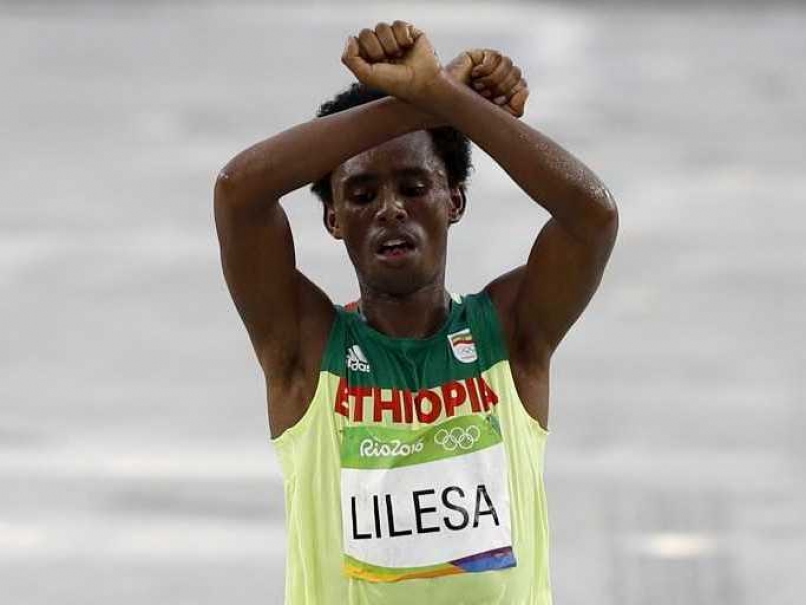-
Tips for becoming a good boxer - November 6, 2020
-
7 expert tips for making your hens night a memorable one - November 6, 2020
-
5 reasons to host your Christmas party on a cruise boat - November 6, 2020
-
What to do when you’re charged with a crime - November 6, 2020
-
Should you get one or multiple dogs? Here’s all you need to know - November 3, 2020
-
A Guide: How to Build Your Very Own Magic Mirror - February 14, 2019
-
Our Top Inspirational Baseball Stars - November 24, 2018
-
Five Tech Tools That Will Help You Turn Your Blog into a Business - November 24, 2018
-
How to Indulge on Vacation without Expanding Your Waist - November 9, 2018
-
5 Strategies for Businesses to Appeal to Today’s Increasingly Mobile-Crazed Customers - November 9, 2018
Olympic marathoner doesn’t return to Ethiopia after protesting repression
Lilesa’s agent Federico Rosa told AFP on Monday that he didn’t think there was “any way” that his client would return to Ethiopia, but said he did not know where the runner was planning to go next.
Advertisement
On Sunday, Lilesa, who came second to Kenyan favourite Eliud Kipchoge in Rio, crossed his arms as he finished the marathon in a symbolic protest against the repressive Ethiopian regime. “If not kill me, they will put me in prison”.
He then claimed he would be “killed” if he went back to the African country following the Games. The silver medalist crossed his wrists in an attempt to draw global attention to recent deadly protests in his home region, Oromia. He called protesting inside Ethiopia “very risky”.
The gesture recalled an earlier protest by Olympic athletes John Carlos and Tommie Smith who gave the Black Power salute on the medal podium after winning gold and bronze in the 200 meter sprint in the 1968 games.
Last November, after the confiscation of a children’s playground and the selling off of an Oromo forest, a wave of mass protests began.
“If I go back to Ethiopia, maybe they will kill me”. The demonstrators and opposition members were initially protesting against the Ethiopian government’s plan to integrate infrastructure development and expand the municipal boundary of the capital, Addis Ababa, into surrounding towns in Oromia. It is meant to symbolize being handcuffed by security forces.
The Addis Ababa expansion plan was scrapped in January and Ethiopian Prime Minister Hailemariam Desalegn apologized for the deaths of protesters in March. Ravina Shamdasani, a spokeswoman for the Office of the U.N. High Commissioner for Human Rights, said it’s critical for human rights experts to have access to areas where there are reports of ongoing arbitrary arrests, intimidation and harassment.
“Lelisa won’t face any problem due to his political stance”, government spokesperson Getachew Reda told Fana. “Funds are needed to support him and his family in the meantime”.
Advertisement
The Federal Government Communication Affairs Office of Ethiopia did not immediately respond to ABC News’ request for comment.




























